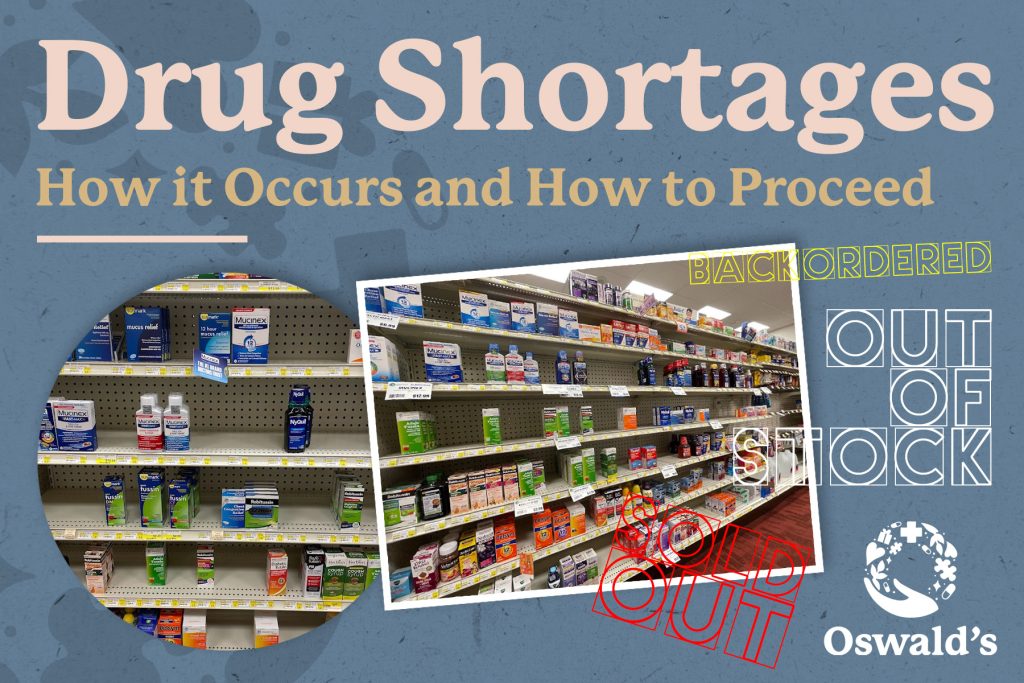You may have noticed empty spaces walking down aisles at your local drugstore. The space was previously filled with children’s pain and cold medications. Or the extra hassle it may take to find out the antibiotic your doctor prescribed is on backorder, leading you to call multiple pharmacies or obtain a different prescription. Supply chain issues are not resolved as easily as “just make more products.”
There are several factors that lead to drug shortages. The duration and location of the shortages vary depending on these factors. Those of you on ADHD medications have come to find that this shortage has scaled to a nationwide level and have had to make accommodations to your regimen. Shortages can be inconvenient and frustrating to overcome. It is important to know what steps would be necessary to still get the therapy you need.
Drug Shortages & The FDA
The FDA works closely with pharmaceutical industries and stakeholders to prevent drug shortages and to reduce the impact on patients anytime there is a delay in availability. There are factors outside of the FDA’s control that can cause or contribute to shortages. Sometimes manufacturers have an unforeseen breakdown in manufacturing lines affecting their production. Other times, shortages are caused by product quality complications, a manufacturer discontinuing a product, or unexpected surges in demand brought on by seasonal illness or a pandemic.
The FDA has the authority to expedite reviews on manufacturer lines or material sources to increase production. They can also extend production expiration dates, if safe to do so, as well as import medication to the U.S. However, the FDA does NOT have the authority to require a pharmaceutical company to make more of a drug or to change how much and to whom it gets distributed. The FDA works closely with drug companies to create a risk management plan in hopes of balancing out the demand and supply.
Getting the Medication You Need
If you find yourself affected by a drug shortage issue, contact your doctor so that they are aware and can prescribe an alternative. If it is a long-term prescription drug that you have been taking, be open to possibly switching over to a different manufacturer, if available, in the meantime. You may need to contact pharmacies in your vicinity to check their availability as suppliers may vary between pharmacies. It can be an inconvenience but do not let it disrupt your treatment. Always make sure your prescriber is in the know of the availability of your medications and be open to adjustments. There are some things that are not in either of our control. I hope that those of you struggling to get your medications have found some resolve. Stay safe and healthy.

